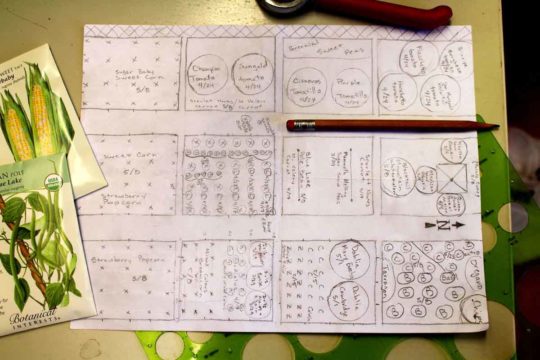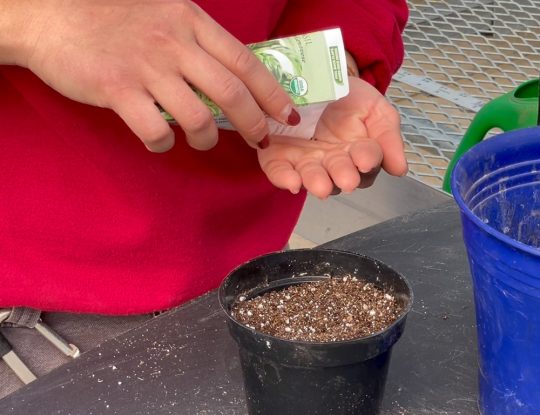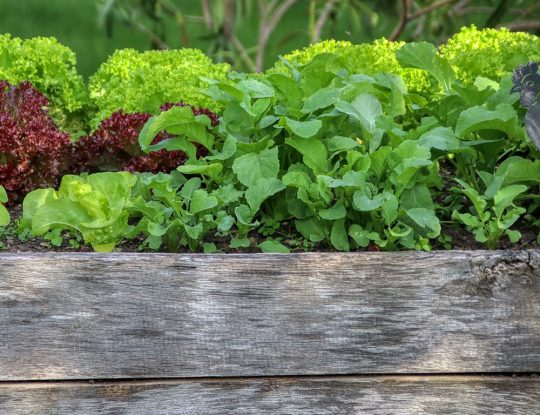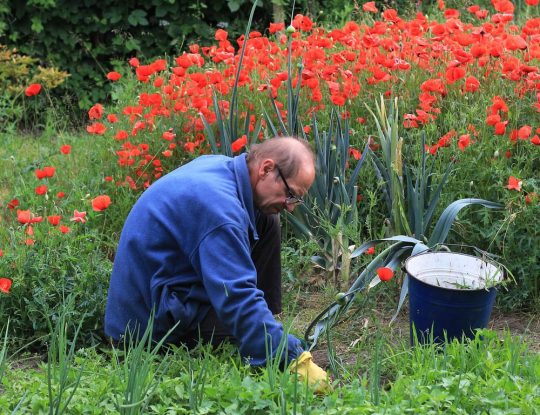By Laurel Aiello
While gardening might seem like a cheap hobby, it can easily become an expensive one due to
the vast selection of plants, gardening tools, and landscaping supplies available online and at
local nurseries. These things certainly keep gardening interesting, but they aren’t always
necessary in order to grow beautiful flower beds or to have a bountiful vegetable harvest. Try
these budget-friendly tips and tricks to keep your garden costs low this season:

CREATE A DIY GARDEN DESIGN
Designing your own garden space can save you lots of money—as long as it’s done right.
Professional landscape designs take into account the level of light, soil type, water
accumulation, elevation, and many other factors in your yard to ensure that the plants you
choose will thrive. Doing this yourself is certainly possible, though you’ll need to do some
additional research to figure out what kinds of plants will do best and where.
Luckily the internet is full of gardening resources (including the CSU Extension), though it’s
often worth the trip to your local garden center to get advice from the perennials, woodies, and
greenhouse experts. There are also plenty of places to find garden inspiration throughout
Northern Colorado, such as the CSU Annual Flower Trial Gardens, the Gardens on Spring
Creek, and the residential gardens featured in the Junior League Garden Tour. Ultimately, your
garden can look however you want it to look as long as you choose the right plants for your
environment.

START PLANTS FROM SEED
Another way to cut down on gardening costs is to start plants from seed rather than buying
nursery stock, though this does require some planning and patience. Starting seeds indoors is
rather simple; all you need are your seeds and some soil, clear plastic trays to plant them in,
and a bright window to place them near. Instead of buying seed starting trays, consider using
clear egg cartons or recycled cups, and label them with popsicle sticks, clothesline clips, or
whatever else you have available to use.
Seed packets contain dozens or even hundreds of seeds, so it’s likely you’ll have leftovers after
planting your crops. Swap seeds with friends and family to minimize waste (seeds become less
viable year after year), and when your plants go to seed in the fall, harvest some to swap in the
spring. For perennials and woody plants that take longer to grow from seed, it might be more
worthwhile to pay a little more for starter sizes of established plants. Just make sure they come
with a warranty!

BUILD YOUR OWN PLANTERS
Raised garden beds and planter boxes can be made from just about anything if you have the
time and creativity to build them yourself. Scrap wood, recycled pallets, and corrugated metal
sheets are perfect for building container gardens, and upcycled pavers and bricks make great
landscape edging. Browse the internet for DIY garden ideas and watch YouTube videos to see
how it’s done, or create a Pinterest board with ideas for your honey-do list.
While many building materials can be purchased at home improvement stores, a little searching
will reveal plenty of secondhand lumber and metal for cheap (or free) in the community. Most
lumber yards have a discounted section with untreated scrap wood, and NGOs like Habitat for
Humanity usually have wooden doors, pavers, tiles, tubs, and other usable materials. Ask your
friends and family if they have any scrap wood lying around, and don’t hesitate to browse
craigslist or shop yard sales to see what building materials people are willing to part with.

DO THE DIRTY WORK
Often it’s the maintenance that drives up the cost of gardening, not the building and planting.
Pesticides, herbicides, and replacement plants can quickly add up, which is why it’s so
important to tend to your garden daily and not forget about it. Many weeds spread quickly if they
aren’t pulled (especially bindweed), and pests can multiply within a matter of days if they aren’t
squashed, so make time to get out in the garden and get your hands dirty.
You also don’t need a bunch of fancy tools to maintain your garden (though they’re fun to have),
so save yourself some money and invest in a simple shovel/spade, hand fork, garden hoe,
shears, and a pair of gardening gloves. Anything else can be bought used, on sale, or saved for
later when your loved ones ask what you want for your birthday.
Originally published on February 27th, 2023.
